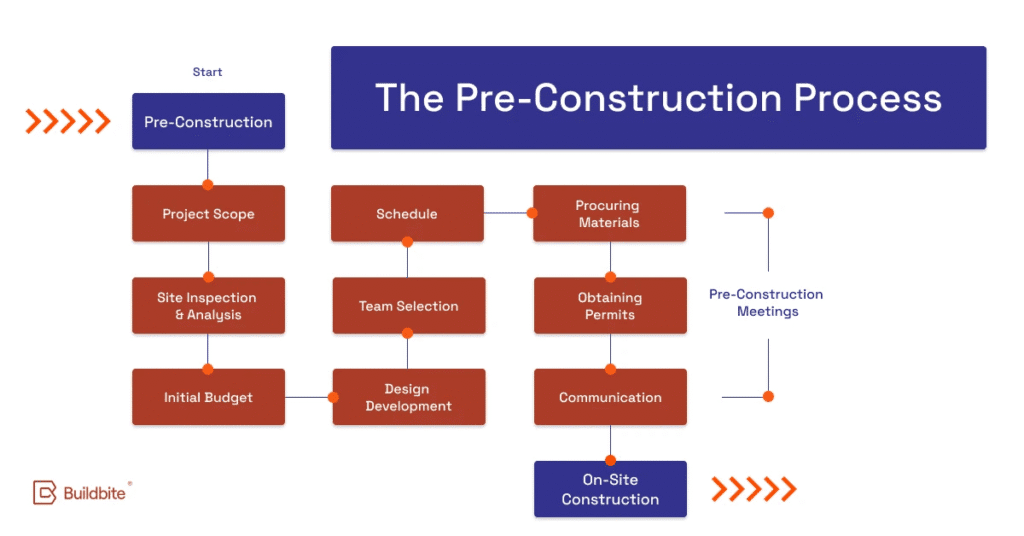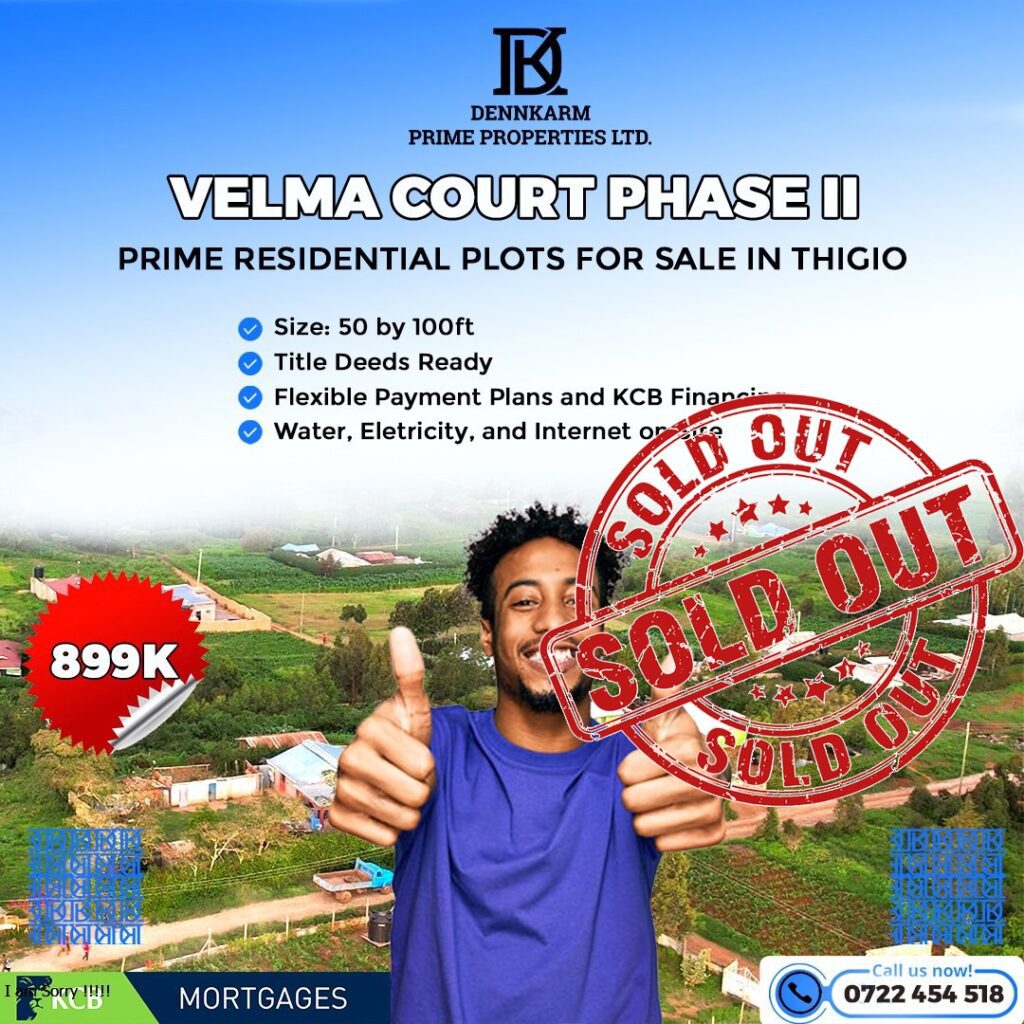
For many, the ultimate goal of Real Estate Investments is not just to acquire property, but to build a home from the ground up. The idea of designing a space that perfectly reflects your vision is incredibly exciting, but the reality of building in Kenya can feel daunting. The process involves multiple stages, from securing a plot to navigating legal permits and managing construction teams. Without a clear plan, what should be a rewarding experience can quickly turn into a stressful and expensive ordeal.
This guide will demystify the homebuilding process, providing a clear, step-by-step roadmap for first-time builders. We will break down the crucial stages, from the permits you must secure to the professionals you need to hire, all while highlighting how a trusted partner like Dennkarm Prime Properties simplifies the foundational steps of this incredible journey.
Table of Contents
- Phase 1: The Pre-Construction Stage (Planning & Legalities)
- Phase 2: The Groundbreaking Stage (Foundation & Structure)
- Phase 3: The Finishing Stage (Interiors & Exteriors)
- Understanding the Costs: A Budgeting Guide
- Why Thigio in Kikuyu is Your Ideal Location
- The Dennkarm Prime Properties Advantage
- Conclusion: From Plot to Paradise
1. Phase 1: The Pre-Construction Stage (Planning & Legalities) ✍
️

Before any ground is broken, you must lay a solid administrative and legal foundation. This is where most first-time builders face the most challenges.
- Secure Your Finances: Have a clear budget. Beyond the cost of the land, you need to account for professional fees, building materials, labor, and a contingency fund of at least 10-15% of the total cost for unexpected expenses.
- Hire Your Professional Team: Building a home is a team sport. Your core team should include:
- An Architect: They bring your vision to life through architectural drawings and house plans. They also guide you through the initial permit process.
- A Structural Engineer: They ensure the design is structurally sound and safe.
- A Quantity Surveyor (QS): They prepare a Bill of Quantities (BoQ), which is a detailed list of all materials and labor, helping you budget accurately and avoid cost overruns.
- Obtain Crucial Permits & Approvals: This is the most critical stage. Building in Kenya requires multiple legal authorizations.
- County Government Approval: This is the big one. Your architect will submit your architectural and structural plans to the county’s planning department. The plans are reviewed for compliance with local building codes and zoning regulations.
- NEMA Approval: For certain projects, an Environmental Impact Assessment (EIA) license is required from the National Environmental Management Authority (NEMA).
- NCA Registration: The National Construction Authority (NCA) requires all building projects to be registered. You must submit your approved plans and a signed contract with your contractor to get a compliance certificate.
- The Land Check: Your lawyer, using your title deed, will conduct an official land search to confirm ownership and ensure there are no legal encumbrances. This step is non-negotiable.
2. Phase 2: The Groundbreaking Stage (Foundation & Structure) 🏗️
Once your permits are in hand, it’s time to break ground! This phase focuses on the physical construction of the house’s skeleton.
- Site Clearing and Excavation: Your contractor will clear the land of any obstacles and excavate the ground according to the approved plans to create space for the foundation.
- Foundation Laying: The foundation is the most important part of your home as it supports the entire structure. It is constructed by digging trenches and filling them with a reinforced concrete mixture. A plinth beam is then added for additional strength and to protect against moisture.
- The Superstructure: This involves erecting the walls of the house. In Kenya, builders use a variety of materials, including machine-cut stones, concrete blocks, or bricks. This stage includes carving out the openings for doors and windows.
- Roofing: After the walls are up, the roof structure is built, followed by the installation of the chosen roofing material, which can range from mabati to clay tiles.
3. Phase 3: The Finishing Stage (Interiors & Exteriors) ✨
This is where your house starts to feel like a home. This phase is all about the details.
- Rough-ins: Before the walls are plastered, your electricians and plumbers will install all the electrical wiring and plumbing pipes. This is a critical stage that is difficult and expensive to change later.
- Plastering and Flooring: The interior and exterior walls are plastered, and the floors are leveled and prepared for the final flooring material, whether it’s tiles, wood, or polished concrete.
- Installation of Doors and Windows: The windows and doors are fitted into their openings. This also provides an additional layer of security for the ongoing construction.
- Final Finishes: This is the last and often most exciting stage. It includes painting, installing kitchen cabinets and countertops, fitting sanitary ware, light fixtures, and all other final touches that make the house habitable.
4. Understanding the Costs: A Budgeting Guide 💰

A common question for first-time builders is, “How much will it cost?” While prices fluctuate, a good estimate is based on the cost per square meter. In areas like Nairobi and Central Kenya (where Thigio in Kikuyu is located), building a standard, middle-class home typically costs between Kshs 33,000 and Kshs 54,000 per square meter. A luxurious finish could go as high as Kshs 80,000 per square meter.
Here’s a simplified breakdown:
- 100 sqm (3-bedroom bungalow): Kshs 3.3M – Kshs 5.4M
- 150 sqm (4-bedroom maisonette): Kshs 5.0M – Kshs 8.1M
Remember, this is a general estimate. The final cost depends on the quality of materials, the complexity of the design, and labor costs.
5. Why Thigio in Kikuyu is Your Ideal Location
The location of your land can significantly impact the ease and cost of your construction project. Thigio in Kikuyu presents an ideal opportunity for first-time builders.
- Proximity to Resources: Located in Kiambu County, Thigio is a short drive from major towns like Kikuyu, Limuru, and Nairobi. This means easy access to hardware stores, building material suppliers, and qualified professionals, all of which reduce transport costs and project delays.
- Growing Infrastructure: The area has seen significant infrastructure development, including better roads and connectivity to water and electricity. Building on a plot that already has these utilities nearby will save you a lot of time and money.
- **A Prime Location for Real Estate Investments: Plots in Thigio are still affordable compared to more developed suburbs, yet their value is rapidly appreciating. This means that a home you build today will not only be your personal residence but also a high-value asset for the future.
6. The Dennkarm Prime Properties Advantage 🤝
Building a home starts with the land. Dennkarm Prime Properties eliminates the most common hurdles for first-time builders by ensuring you have a secure and legally sound foundation.
- Pre-Vetted Plots: Our plots in Thigio in Kikuyu come with a clean, ready title deed. This means you can bypass the lengthy and risky process of land due diligence, and go straight to the exciting part: planning your build.
- Peace of Mind: We provide you with all the necessary documents and support to ensure a smooth transition from land ownership to construction.
- Ideal Location: Our properties are located in areas with high growth potential and easy access to the resources needed for your build.
7. Conclusion: From Plot to Paradise 🏡
Building your dream home in Kenya is a marathon, not a sprint. By breaking down the process into manageable stages, understanding the legal requirements, and partnering with the right professionals, you can turn your vision into a tangible reality. With a secure plot from Dennkarm Prime Properties, you have the perfect starting point to create a home that is a true reflection of your vision and a valuable asset for years to come.
More Information
- Architectural Association of Kenya (AAK): To find and verify the credentials of a registered architect.
- National Construction Authority (NCA): To verify the legitimacy of a contractor and register your project.
- The Physical Planning Act, 2019: Provides the legal framework for planning and development in Kenya.
- Dennkarm Prime Properties Blog: For more insights on Real Estate Investments and property ownership in Kenya.
Call to Action
Ready to begin your journey to building your dream home? Start with a secure foundation. Dennkarm Prime Properties has prime plots available in Thigio in Kikuyu that are pre-vetted and ready for immediate construction.
Contact us today to secure your future!
Dennkarm Prime Properties Contact Details:
- Phone/WhatsApp: +254-722-45-45-18 or +254-101-45-45-00
- Email: info@dennkarmproperties.com / sales@dennkarmproperties.com
- Office Address: 3rd Floor (Room 301), Muchane Plaza, Kikuyu
- Website: dennkarmproperties.com




